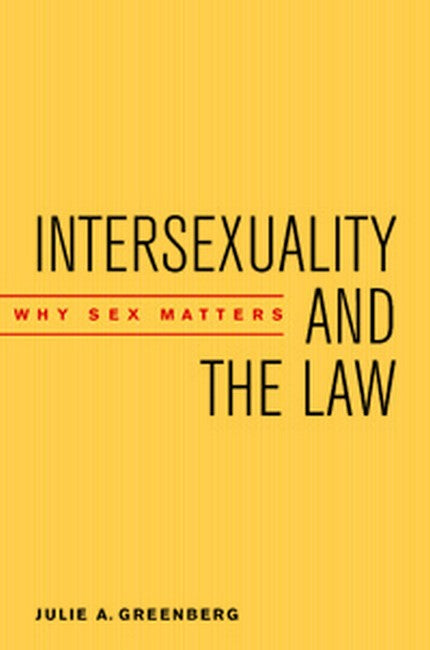Winner of the 2013 Bullough Award presented by the Foundation for the Scientific Study of Sexuality The term "intersex" evokes diverse images, typically of people who are both male and female or neither male nor female. Neither vision is accurate. The millions of people with an intersex condition, or DSD (disorder of sex development), are men or women whose sex chromosomes, gonads, or sex anatomy do not fit clearly into the male/female binary norm. Until recently, intersex conditions were shrouded in shame and secrecy: many adults were unaware that they had been born with an intersex condition and those who did know were advised to hide the truth. Current medical protocols and societal treatment of people with an intersex condition are based upon false stereotypes about sex, gender, sexual orientation, gender identity, and disability, which create unique challenges to framing effective legal claims and building a strong cohesive movement. In Intersexuality and the Law, Julie A. Greenberg examines the role that legal institutions can play in protecting the rights of people with an intersex condition. She also explores the relationship between the intersex movement and other social justice movements that have effectively utilized legal strategies to challenge similar discriminatory practices. She discusses the feasibility of forming effective alliances and developing mutually beneficial legal arguments with feminists, LGBT organizations, and disability rights advocates to eradicate the discrimination suffered by these marginalized groups.

